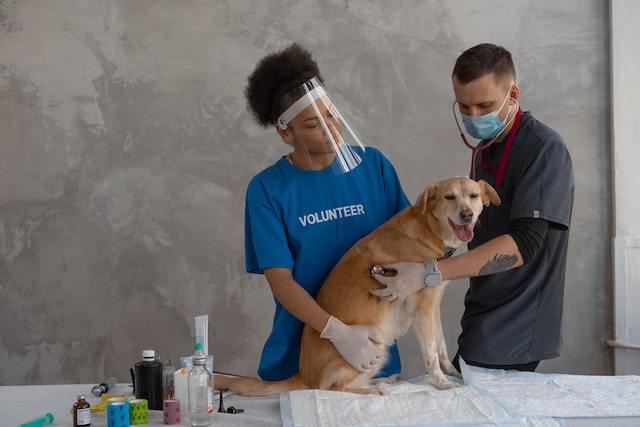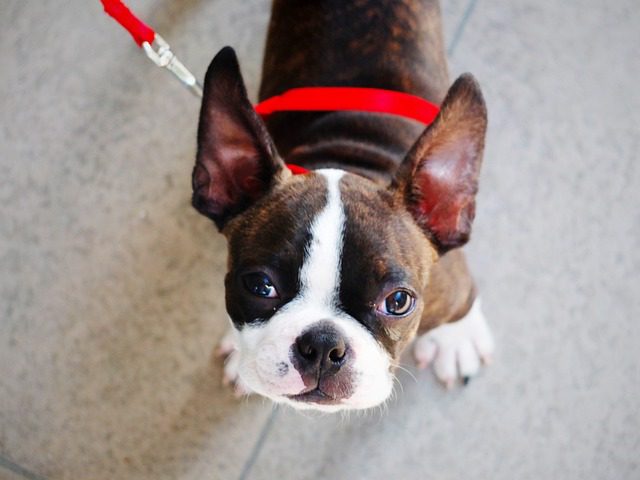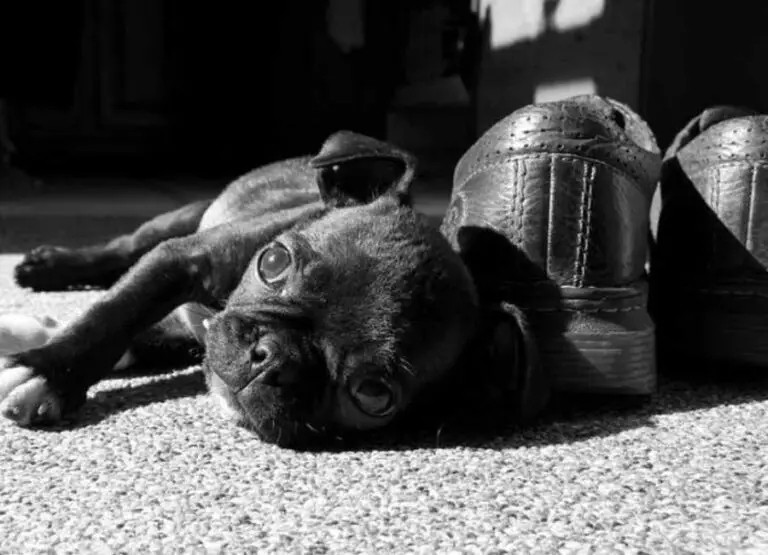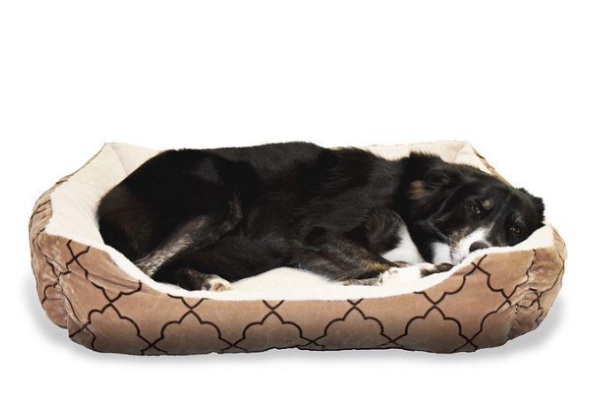Shih Tzu Eating Problems: 13 Causes & How To Fix Them
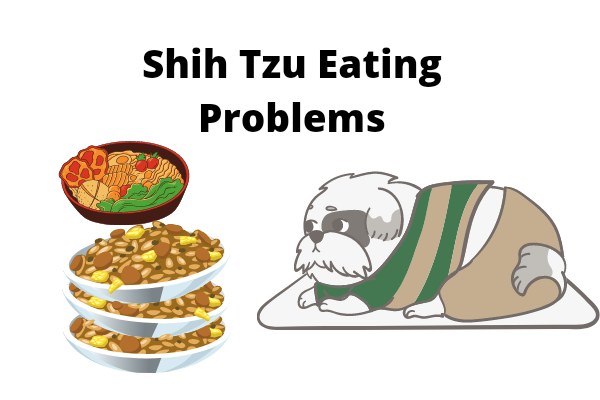
Most Shih Tzu owners are complaining about Shih Tzu eating problems, this is exactly what we will be discussing all through this post.
Shih Tzu is a small, sturdy toy dog that is bred to be a companion animal.
They can have a lot of energy and need plenty of exercises, but they should also be fed a healthy, nutritionally balanced diet.
What you feed your Shih Tzu can make or break his health.
A good diet will lead to a healthy dog that doesn’t have an unpleasant odor.
Knowing what to feed your Shih Tzu and how much is crucial to ensure he enjoys a long, happy life.
Shih Tzu Eating Problems
Shih Tzus are known to have a sensitive stomach, which means they’re very picky with what type of food they eat.
Some Shih Tzus eating problems include dental problems, internal obstructions, adverse reactions to drugs, changes in their environment, allergies, wrong diet composition, and much more.
No one wants to buy dog food that their dog will refuse to eat.
However, it can happen, most of the time, this is because something in the pet food doesn’t agree with the pooch’s taste buds.
Here are some things that can lead to a pup refusing its kibble:
- The size and consistency of the kibble
- The flavor of the kibble or lack thereof
- The time of day when they are being fed
- Their diet history
- The health condition they have been diagnosed with
Here are some of the most common eating problems that Shih Tzus experience:
Food allergies
Shih Tzus with food allergies will scratch and chew at their skin and hair more than usual.
This can be an indication that they’re experiencing an allergic reaction to something in their food or water.
Symptoms of allergies in Shih Tzus
- Hyperactivity
- Aggression
- Diarrhea
- Lack of energy
- Itchy skin
- Poor skin and coat
- Chronic ear or foot infections
- Scratches, bites, and licks at his skin,
Puppyhood
Shih Tzus puppies experience eating problems as they grow up. They might not know when to stop eating, so they overeat, and it becomes a problem for the owner.
This is to say that puppyhood comes with it own eating problems, oftentimes a Shih Tzu puppy may be eating a meal out of stress.
Not knowing what to eat and when to stop eating is another eating problem every Shih Tzu owner face, this can be fixed by measuring the exact amount your pup should eat with the help of your vet.
Worms
Worms for the most part are a big issue in dogs and can lead to unnecessary behaviors like vomiting.
When a Shih Tzu is suffering from worm attack, they become too reluctant to eat even when they are hungry.
There are many ways Shih Tzus can get worms, which are follows:
- From other worm infected pets
- Mosquitoes
- Fleas
- Eating worm larvae
- Infected water bowl
- Licking themselves
Here are some interesting topics about dogs and worms for better understanding:
- Ways humans can get worms from dogs.
- Reasons you see dead worms in dog poop.
- Common symptoms of worms in dogs.
Odd flavor
Shih Tzus are known to have a sensitive stomach and a strong smell, as well as good taste buds.
This can sometimes become a problem for Shih Tzus and their owners, as they tend to be picky with the smell of what they eat.
Kibbles or wet food, as well as a homemade meal with odd flavor, always presents Shih Tzu eating problems.
Therefore, attempting to get any food should be an agreement between you, your vet, and your pup.
Shih Tzus will never eat any food you offer that has an odd or worrying flavor.
Therefore, if your Shih Tzu is having any eating problem, be sure to check the meal flavor.
Size and consistency of the kibble
The size and consistency of the kibbles or food you give to your Shih Tzu can present a big eating problem to your pup.
The bigger the size of the food, the more problem it becomes for your pup.
Shih Tzus are small breeds of dogs, and therefore you should always cut down on the size of their food.
Read more about: Shih Tzu Barking At Night: 8 Reasons & Solutions.
Health condition
In dogs, a loss of appetite is frequently an indication of illness, especially if your dog is displaying other symptoms at the same time.
Although a loss of appetite in dogs does not always signal a serious illness.
It is crucial to seek veterinary help right once since it might be a symptom of serious sicknesses, such as cancer, different systemic infections, discomfort, liver issues, or renal failure.
A health condition can present a big eating problem to your Shih Tzu, always consider the health status of your Shih Tzu when your Shih Tzu is not eating.
Changes in diet
Have you made any recent dietary adjustments for your Shih Tzu’s food? This could result in Shih Tzu eating problems.
Your dog might not appreciate what you’re serving now if you alter foods or when you want to try a new product.
Finally, if you haven’t altered your dog’s food in a long time, this might be a problem.
If dogs eat the same thing every day for months, they may become bored with food.
Anxiety and Stress
Anxiety and stress are some of the basic causes of Shih Tzu eating problems, this can also cause behavior problems in your Shih Tzu.
There are lots of things that can cause anxiety or that could be stressful for a small breed of dog like Shih Tzu.
Here are some signs of anxiety found in Shih Tzus;
- Destructive chewing
- Freezing
- Excessive Barking
- Pacing
- Whining
- Excessive sleeping
- Hiding
- Growling
- Scratching
Here is a complete guide to understanding Shih Tzu anxiety and how to fix it.
Let’s now touch on some causes of anxiety and stress in Shih Tzus which includes the following:
- Loud sounds
- Changes in daily routine
- Shouting at your Shih Tzu
- Leaving your pup at home alone for too long
- Changing food
- Lack of mental stimulation
- Lack of exercise
Stomach upset
Stomach upset can result in Shih Tzu eating problems, stomach upset in Shih Tzus can be caused by a large number of factors.
Here are some things that can cause stomach upset in Shih Tzu:
- Stomach ulcers
- Ingestion of unwanted materials
- Hemorrhagic Gastroenteritis
- Ingestion of fleas
- Digestive System Cancer
- Eating expired kibbles
- Obstructions
- Chronic dehydration
- Worms
- Gastrointestinal infections
- Bloating
- Inflammation
Reads more about: What Makes Shih Tzus Happy: 23 Shih Tzus happy Hacks.
Hurting tooth/Dental problems
Because anything in your dog’s mouth hurts, he or she may refuse to eat.
Examine them for damaged or loose teeth, severe gingivitis, or even an oral tumor.
If you find your dog’s teeth are broken, loose, or terrible, or if his gums are irritated, this might be the reason he isn’t eating.
Look for parasites, changes in your pet’s fur and skin, and any lumps or injuries while inspecting their body.
Do not hesitate to contact a veterinarian if you discover anything odd.
Overall quality of food
The overall quality of food can directly affect and become part Shih Tzu eating problems.
If your dog refuses to eat the food, be sure nothing is wrong with it.
Check the expiration date on the label, as well as the color and smell.
If you believe the food has gone bad, throw it out and give your dog something else to eat.
Changes in their environment
It’s possible that your dog stopped eating because he ate something he shouldn’t have.
Examine your houseplants, rugs, pet’s toys, and any other objects in your home that your four-legged companion has access to.
If your puppy or new dog is refusing to eat, it might be due to a change in surroundings. It’s the same if you’ve recently relocated.
Find out whether someone has previously fed your dog if your pet has been spending time with other people during the day.
Internal obstructions
Shih Tzu eating problems can be a result of internal obstructions in the dog’s stomach and these can be different things.
Bowel blockages are most commonly caused by a dog ingesting foreign things such as toys, pebbles, bones, and other objects.
These items become stuck in the intestines because they are unable to travel through them.
They can potentially induce stomach and intestinal perforation.
Adverse reaction to drugs
Vaccines are available for a variety of severe and infectious dog illnesses.
Despite the fact that these injections have saved the lives of millions of pets over the last century, they can occasionally cause side effects.
The bulk of them is small and transient, such as a dog’s short loss of appetite.
If your dog has access to drugs or chemicals, be especially cautious.
Consult a veterinarian straight away if anything is missing and your dog is vomiting or has diarrhea.
Read more about some common Shih Tzu behavior problems.
How to fix Shih Tzu eating problems
Here are some common solutions to your Shih Tzu eating problems:
- Take your dog for a walk before mealtime.
- Experiment with different food dishes and different ways of serving your dog’s food.
- Reduce the quantity of treats you give your dog.
- Set a consistent feeding plan for your dog, usually twice a day, and make sure you give her the right quantity of food each time.
- To provide some extra-tasty temptation, sprinkle a little wet food on top of your dog’s dry meal.
- If necessary, make the meal more attractive.
- Reconsider the meals you’re serving.
- Be aware of the various serving sizes.
- Make sure your dog don’t have any health concerns.
- Mix things up every once in a while.
- Maintain a routine that is working for you.
- Find out what flavors and scents your dog enjoys.
- Try to get better food.
- Make sure your dog’s food is at the proper temperature.
- Always check the expiration date before giving it to your pet.
Read more: Are Shih Tzus Good With Kids: 18 Pros & 8 Cons To Consider.

![How to Treat a Broken Dog Nail [A Step By Step Guide] How to Treat a Broken Dog Nail](https://petcreeks.com/wp-content/uploads/2023/09/igor-bumba-V9JMh9A-10E-unsplash.jpg)
